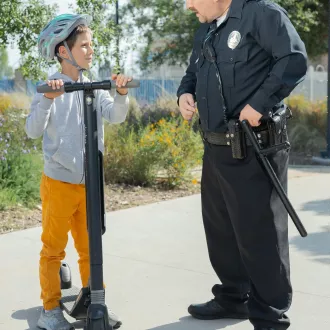Transcription Evaluate and accept the consequences of their decisions
This topic is key to fostering children's autonomy, as children must learn to make decisions and assume the consequences of their actions. In this article, we will discuss the best strategies for teaching them to make responsible decisions and to accept and learn from the results of their choices.
Making informed decisions
Before children can learn to accept the consequences of their decisions, it is essential that they know how to make informed decisions. This implies that they have sufficient information about the options available to them and understand the potential repercussions of each choice.
Guiding children by providing them with relevant information is essential to help them in this process. For example, if a child is deciding what to wear, parents or caregivers can provide guidance about the weather and suggest appropriate options.
It is equally important to allow children to make decisions for themselves whenever possible, and to take responsibility for their choices.
Accepting and learning from consequences
Part of developing children's autonomy involves learning to accept and reflect on the consequences of decisions. Children need to understand that every choice has outcomes, both positive and negative.
Whenever it is safe, it is necessary for children to experience these consequences. For example, if a child chooses not to study for a test and gets a bad grade, it is important for him or her to face that outcome. However, parents and guardians should be present to guide the child and help him or her draw lessons from the situation.
Encourage refl
consequences decisions ninos




